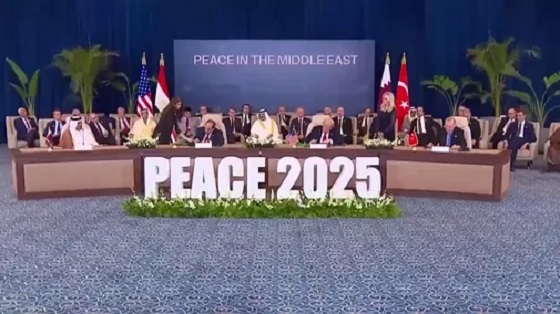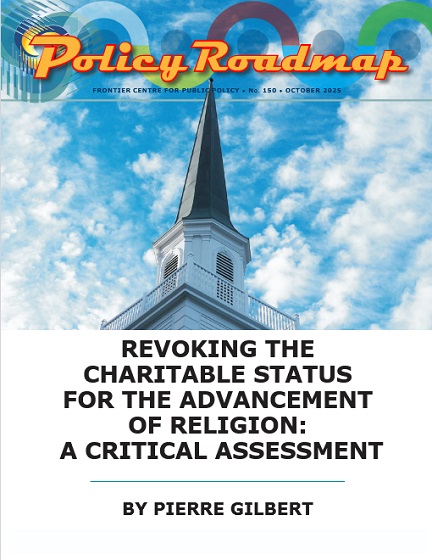International
‘Wrong in principle’: Former UK prime ministers torch proposed assisted suicide legislation

A nurse injects medicine for euthanasia to an elderly man in a hospital bed
From LifeSiteNews
As UK lawmakers prepare to vote on Kim Leadbeater’s assisted suicide bill, opposition mounts from ex-prime ministers, clergy, and healthcare leaders, who condemn the practice ‘in principle’ while warning of risks to vulnerable patients and flawed safeguards.
At least four former U.K. prime ministers have opposed Kim Leadbeater’s assisted suicide bill as the Friday vote looms.
Former Labour Prime Minister Gordon Brown published his editorial opposing assisted suicide in the Guardian on November 22, revealing that the moments he and his wife spent with their dying infant daughter were among the most precious in his life and calling on Parliament to instead focus on improving end-of-life care.
According to the Daily Telegraph, former British leaders Boris Johnson, Liz Truss, and Baroness Theresa May have all expressed their opposition to the deceitfully named Terminally Ill Adults (End of Life) Bill. May’s opposition to assisted suicide has not changed since she voted against it in 2015, and thus she expects to vote against the Leadbeater bill if it progresses to the House of Lords, according to sources close to May.
Liz Truss has been forthright in her opposition, telling the Telegraph that she is “completely opposed” to assisted suicide: “It is wrong in principle: organs of the state like the NHS and the judicial system should be protecting lives, not ending them.” Boris Johnson also opposes the assisted suicide bill in its current form, the Telegraph reports. Rishi Sunak is not opposed to assisted suicide “in principle,” but has not stated which way he will be voting; Tony Blair has also thus far remained silent.
Unfortunately, former prime minister David Cameron has changed his view on assisted suicide, stating that despite his previous concerns that vulnerable people might be pressured to end their lives, Leadbeater’s bill has “strong safeguards.” As several experts have already pointed out, Cameron is wrong about the bill – in fact, the legislation as written is vague, disastrous, and filled with loopholes.
Indeed, the bill’s sponsor and most aggressive champion, Labour MP Kim Leadbeater, has suggested that fear of being a burden is a “legitimate reason” for dying – and the “safeguards,” such as Clause 25, which protects medical professionals involved in assisted suicides from civil liability, reveals who the safeguards are actually for.
Although the assisted suicide camp still has more confirmed votes, opposition to the bill has been mounting in recent days. The Times condemned the bill, stating in no uncertain terms:
Legislation sanctioning the killing of human beings, irrespective of life expectancy, is a matter worthy of the most rigorous debate. Ms Leadbeater implied only this week that doctors would be allowed to raise the issue of assisted dying with patients who had expressed no desire for it. Such flippant and ad hoc reasoning behind this most important of bills condemns it.
Even the Church of England has stepped up, with over 1,000 members of the Anglican clergy – including 15 bishops – signing an open letter stating:
To reduce the value of human life to physical and mental capacity and wellbeing has sinister implications for how we as a society view those who experience severe physical or mental issues.
Cardinal Vincent Nichols and other prominent Catholic clergy have also been vociferous in their condemnation of the bill; Chief Rabbi Sir Ephraim Mirvis published his opposition to the bill on November 26.
READ: Euthanasia advocates use deception to affect public’s perception of assisted suicide
These religious leaders are joined by jurists such as former judge Sir James Munby and former attorney Dominic Grieve. Additionally, 3,400 healthcare professionals, including 23 hospice medical directors and 53 eminent medical professionals, signed a letter stating that Leadbeater’s bill “would threaten society’s ability to safeguard vulnerable patients from abuse.” London Mayor Sadiq Khan also opposes the bill.
In response, suicide lobby group Dying With Dignity is pouring money into ad campaigns on social media, running 602 Facebook ads in the past month. Supporters of assisted suicide are claiming that a majority of the public supports the bill, and some polls indicate that over 60 percent do. However, as the saying goes, polls are taken to shape public opinion, not gauge it. From the Daily Mail:
[A new poll] found that when presented with ten basic arguments against assisted suicide – based on experiences from other countries such as Canada where the practice is allowed – support collapses. In this case the proportion of “supporters” who did not switch to oppose or say “don’t know” fell to just 11 per cent, the polling found. Support fell in every social category by between 17 and 49 percentage points.
This poll reveals precisely why Keir Starmer, the U.K.’s first openly atheist prime minister, permitted such an important bill to be so rushed: the more people know, the more they oppose assisted suicide. Let’s hope that the pushback is enough to carry the day.
International
Daughter convinces healthy father to die in double assisted suicide with mother

From LifeSiteNews
By Cassy Cooke
After her parents both became seriously ill and her mother wanted to undergo assisted suicide, a Washington woman convinced her father to die also.
Key takeaways
- Corinne Gregory Sharpe spoke to PEOPLE about her experience convincing her parents to undergo assisted suicide together.
- After her mother was diagnosed with aortic stenosis in her 90s, she lived for a few more years before her health began to decline. At that point, she said she wanted to die by assisted suicide.
- Her father did not have a health condition outside of having previously had a stroke; however, he was nervous to live without his wife. Sharpe convinced him of a “solution” – to kill himself alongside her mother.
- Couple assisted suicide has become romanticized by the media.
The details
Corinne Gregory Sharpe spoke with PEOPLE about her efforts to convince her father to undergo assisted suicide alongside her mother. She said her family had always been close, so when her mother became ill, her father was nervous to live without her.
Sharpe’s mother was first diagnosed with aortic stenosis in 2018 at the age of 92 and given less than two years to live if she did not undergo surgery.
“And even if she had the procedure, there was no guarantee that she was gonna live any longer,” Sharpe said. “So her attitude was sort of like, well, let’s just kind of let things go as they go.”
READ: Colorado gave over 500 people assisted suicide drugs solely for eating disorders in 2024
But Sharpe’s mother didn’t die within those two years. In fact, it was three years later that her health began to decline, only after she fell and hit her head. Shortly after that, Sharpe’s father appeared to suffer small strokes. “So now I have two parents in medical care,” Sharpe said.
Her parents were able to be at a rehabilitation facility together, but Sharpe said they were “losing the will to live,” so she brought them back home. Doctors recommended hospice, but her mother decided she wanted to undergo assisted suicide, which left her father distraught. Sharpe came up with an “interesting” solution.
“I had a very interesting, serious heart-to-heart conversation with him one evening after my mom had gone to bed,” she continued. “And he was just panicked like, ‘What happens to me if she goes first?’ That’s always been a concern of his. He couldn’t see a scenario where he would want to continue if mom was gone.”
She added, “He’s always been afraid of dying. But I think he was more afraid of being left alone. He was like, ‘Well, if she’s gonna go and I have the option to go at the same time, then I’m getting on that horse.’ So I was like, look, we’ll figure something out.”
At this point, her father was not dying, and if he suffered another stroke, doctors believed he could end up incapacitated, but not terminally ill. Yet Sharpe was able to get her father approved for assisted suicide, calling it “a race” to do so.
Sharpe spent what would be the last few weeks of her parents’ lives hosting family dinners, making them their favorite meals, and sharing memories as a way to “repay my parents for everything they’d done for me.” It sounds nice, but there’s no need for an adult child to wait until she knows her parents are dying to do such things for them.
When the drug powder arrived, Sharpe took a selfie with the delivery man and then stuck the drug on a shelf, where it feasibly could have been accessed by anyone. She then joked about choosing Friday the 13th to die, which is when her parents ultimately took the drugs – Friday, August 13, 2021.
“The counselors prepared the cocktail, we sat around and shared some private moments together. They got to sit in their own bed and hold hands with each other and talk before they were able to take the meds,” she said. “We put music on and they took the cocktail. Then we poured a glass of wine and we had a final toast. About 10 minutes after they drank it, they went to sleep.”
Zoom out
It has become increasingly common and romanticized for elderly couples to be euthanized together. This includes murder-suicides and those who opt to die together simply because they are elderly.
But the reality of assisted suicide is that it may not be as peaceful and romantic as many have been led to believe.
As Dr. Joel Zivot, an associate professor of anesthesiology and surgery at the Emory School of Medicine and an expert on “physician participation in lethal injection,” previously explained, assisted suicide can be excruciating, even if it doesn’t appear to be.
“[F]or both euthanasia and executions, paralytic drugs are used,” he wrote in an op-ed for the Spectator. “These drugs, given in high enough doses, mean that a patient cannot move a muscle, cannot express any outward or visible sign of pain. But that doesn’t mean that he or she is free from suffering.”
He added, “People who want to die deserve to know that they may end up drowning, not just falling asleep.”
Furthermore, a study in the medical journal Anaesthesia found that prolonged, painful deaths from assisted suicide and euthanasia were far from rare, with a considerable number of patients taking 30 hours to die, though some took seven days. Experiments with assisted suicide likewise have been painful, with one drug cocktail “burning patients’ mouths and throats, causing some to scream in pain.” The same drugs labeled as too inhumane to be used for lethal injection are used in assisted suicide.
The bottom line
Suicide is not dignified, peaceful, or romantic. Efforts are made to prevent suicide unless the person in question is elderly, ill, or disabled. And then, it’s made to appear noble and romantic to take your own life.
Reprinted with permission from Live Action.
Business
Former Trump Advisor Says US Must Stop UN ‘Net Zero’ Climate Tax On American Ships


From the Daily Caller News Foundation
Later this week the United Nations will hold a vote on a multi-billion climate-change tax targeted squarely at American industry. Without quick and decisive action by the White House, this U.N. tax on fossil fuels will become international law.
This resolution before the International Maritime Organization will impose a carbon tax on cargo and cruise ships that carry $20 trillion of merchandise over international waters. Roughly 80% of the bulkage of world trade is transported by ship.
The resolution is intended to advance the very “net zero” carbon emissions standard that has knee-capped the European economies for years and that American voters have rejected.
This tax is clearly an unnecessary restraint on world trade, thus making all citizens of the world poorer.
It is also an international tax that would be applied to American vessels and, as such, is a dangerous precedent-setting assault on U.S. sovereignty. Since when are American businesses subject to international taxes imposed by the United Nations?
The U.S maritime industry believes the global tax would cost American shippers more than $100 billion over the next seven years if enacted.
Worst of all, if the resolution passes, it will require the retirement of older ships and enable a multi-billion-dollar wealth transfer to China, which has come to dominate shipbuilding in recent years. China STRONGLY supports the tax scheme, even though, ironically, no nation has emitted more pollutants into the atmosphere than they have. Yet WE are getting socked with a tax that indirectly pays for THEIR pollution.
Despite the fact that we pay a disproportionate share of the tax, the U.S. has almost no say on how the revenues are spent. This is the ultimate form of taxation without representation.
Even if the United States chooses not to implement the tax on domestic shipping, it will still be enforced by foreign ports of origin or destination as well as by flag states. As a result, American importers and exporters will be required to pay the tax regardless of domestic policy decisions.
Secretary of State Marco Rubio, Secretary of Energy Chris Wright, and Secretary of Transportation Sean Duffy have jointly stated that America “will not accept any international environmental agreement that unduly or unfairly burdens the United States or our businesses.” They call the financial impact on the U.S. of this global carbon tax “disastrous, with some estimates forecasting global shipping costs increasing as much as 10% or more.”
The U.S. maritime industry complains that although American vessels carry only about 12% of the globally shipped merchandise, U.S. flag vessels would bear almost 20% of this tax. No wonder China and Europe are for it. The EU nations get 17 yes votes to swamp the one no vote out of Washington.
Unfortunately, right now without White House pressure, we could lose this vote because of defections by our allies.
To prevent this tax, the White House should announce a set of retaliation measures. This could include a dollar-for-dollar reduction in U.S. payments to NATO, the U.N., IMF and World Bank.
At a time when financial markets are dealing with trade disputes, the last thing the world — least of all the United States — needs is a United Nations excise tax on trade.
Stephen Moore is co-founder of Unleash Prosperity and a former Trump senior economic advisor.
-

 Alberta2 days ago
Alberta2 days agoFact, fiction, and the pipeline that’s paying Canada’s rent
-

 Energy1 day ago
Energy1 day agoIndigenous Communities Support Pipelines, Why No One Talks About That
-

 Business2 days ago
Business2 days agoFinance Titans May Have Found Trojan Horse For ‘Climate Mandates’
-

 Alberta1 day ago
Alberta1 day agoOil Sands are the Costco of world energy – dependable and you know exactly where to find it
-

 International2 days ago
International2 days agoSigned and sealed: Peace in the Middle East
-

 Business1 day ago
Business1 day agoFinance Committee Recommendation To Revoke Charitable Status For Religion Short Sighted And Destructive
-

 International1 day ago
International1 day agoNumber of young people identifying as ‘transgender’ declines sharply: report
-

 Alberta1 day ago
Alberta1 day agoThe Technical Pitfalls and Political Perils of “Decarbonized” Oil







